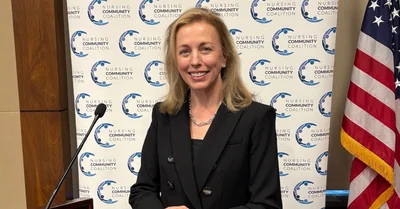WASHINGTON, DC - The Subcommittee on Oversight and Investigations, chaired by Rep. Gregg Harper (R-MS) today held a hearing examining concerns of patient brokering and addiction treatment fraud in the wake of the opioid crisis.
With the opioid epidemic and an increase in substance use disorders, there has been an increased demand for treatment. Sadly, recent reports indicate that individuals known as “patient brokers" are treating individuals seeking treatment for their substance use disorders as a commodity, rather than helping them receive legitimate treatment and ultimately achieve recovery.
“The individuals who are brokered are lured into these schemes by promises of ‘scholarships’ for treatment, a free plane ticket, free housing, along with other incentives such as free cigarettes, movie tickets, and yoga," said #SubOversight Chairman Harper. “The patient brokers themselves receive generous financial kickbacks from facilities. The incentive is not to find an evidence-based treatment option that meets the needs of the individual, but instead to simply ‘fill the beads with heads.’"
The patient brokering scheme goes beyond recruiting, as allegations have surfaced regarding treatment and billing issues.
“A Palm Beach Post investigation of the county’s $1 billion drug treatment industry found that testing urine in the substance use disorder treatment industry is so lucrative that treatment centers are paying sober living homes for patients," said Energy and Commerce Committee Chairman Greg Walden (R-OR). “A basic urine drug screening test in cup can detect 10 types of drugs or more, costs less than $10, and can display the results within minutes. Yet we’ve heard of instances where individuals are tested daily and the treatment facility or sober living home sends the samples for more expensive confirmatory tests that can costs thousands of dollars."
Witnesses delivering opening statements
Witnesses addressed a number of complex issues within the patient broker scheme, including what states are doing to combat this growing problem, and the challenges they are facing as a result.
Mr. Douglas Tieman, President and CEO, Caron Treatment Centers, stated, “Regulations for addiction treatment providers vary state by state - and in some states, regulations are virtually nonexistent. This lack of regulation and standards within the sector makes it hard for families and individuals to identify quality treatment programs, and creates a fertile environment for deceptive business practices, fraud, patient neglect and, ultimately, treatment malpractice."
Mr. Dave Aronberg, State Attorney, 15th Judicial Circuit, stated, “As we succeed in arresting rogue providers and shutter corrupted facilities, we have seen the criminal element leave Palm Beach County for other communities unaware of the Florida shuffle. We have held training sessions for prosecutors and law enforcement officials throughout the state and we’re offering our assistance to jurisdictions throughout the country. …But local and state law enforcement cannot solve this problem alone. We need the federal government to fix federal laws and regulations that exacerbate the national problem and tie our hands at the local level."
Bipartisan committee leaders have actively been investigating patient brokering reports for the last several months, first sending a letter to the Department of Health and Human Services (HHS) in July, and most recently sending letters to departments of six state governments to gather additional information regarding how substance use disorder treatment facilities are regulated and overseen at the state level in November.




